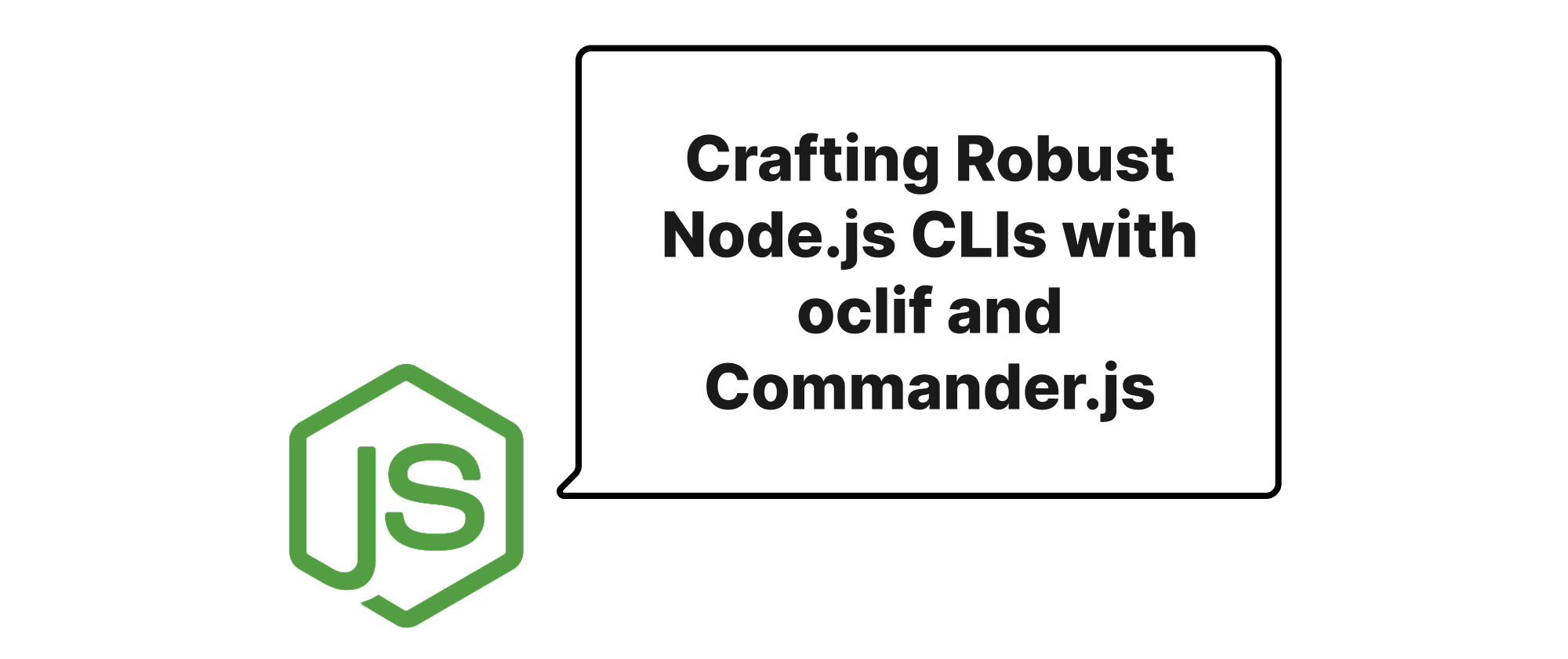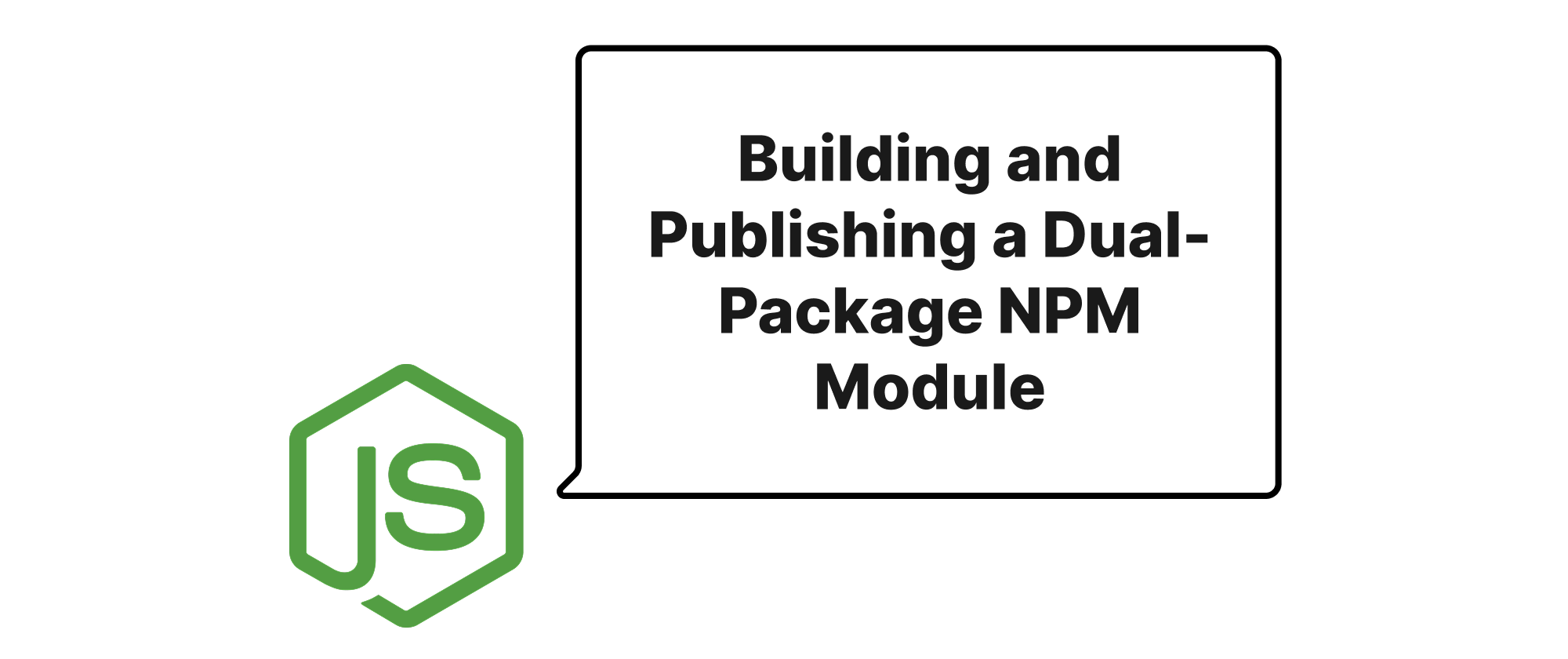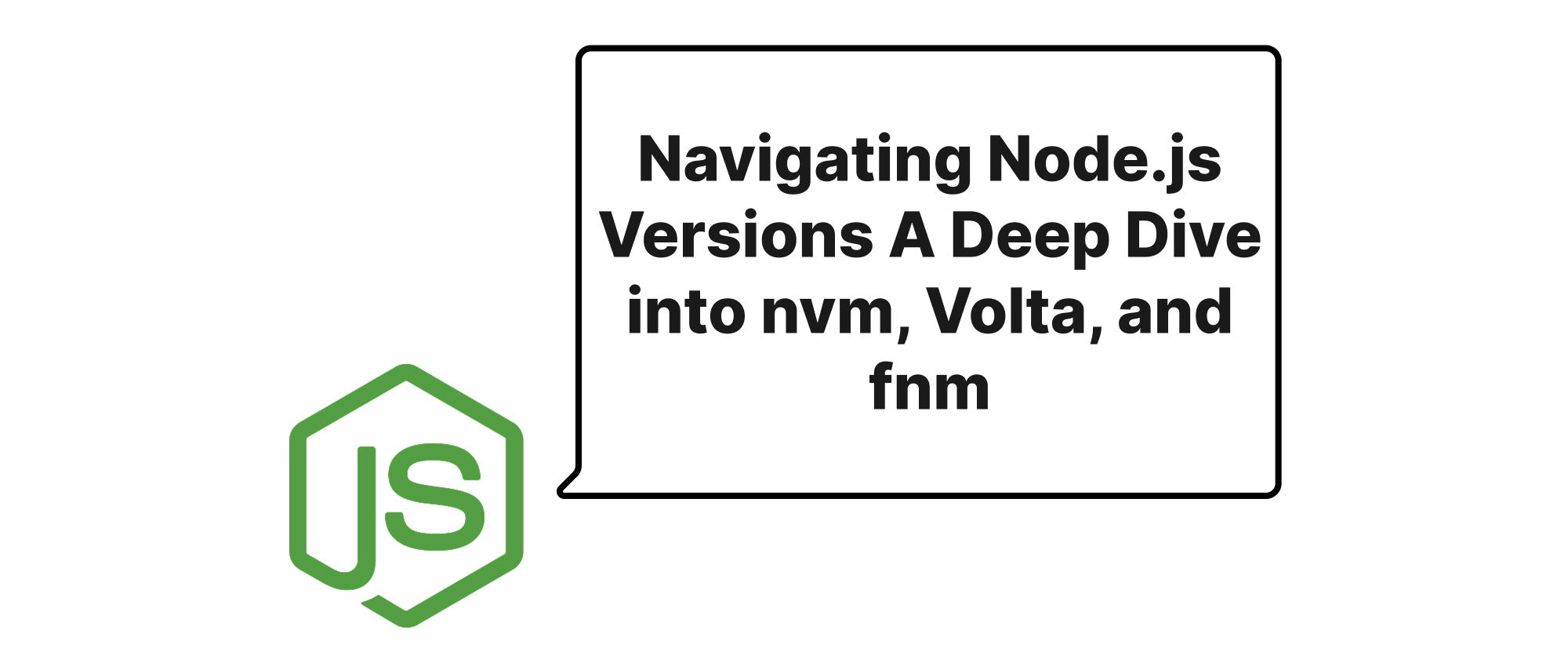Crafting Robust Node.js CLIs with oclif and Commander.js
Lukas Schneider
DevOps Engineer · Leapcell

Introduction: Elevating Your Node.js Interactions
In the realm of software development, command-line interfaces (CLIs) remain an indispensable tool for automation, configuration, and direct interaction with applications. For Node.js developers, building a CLI can range from a simple script to a sophisticated, multi-command utility that forms the backbone of a development ecosystem. While basic CLIs can be cobbled together with native Node.js APIs, the process often becomes cumbersome as complexity grows, leading to issues with argument parsing, command structuring, help generation, and error handling. This is where specialized frameworks like oclif and Commander.js step in, providing robust solutions to streamline the development of professional-grade Node.js CLIs. They transform the daunting task of building complex CLIs into an organized, maintainable, and even enjoyable experience, significantly enhancing developer productivity and the usability of your tools. This article will delve into the features and methodologies these powerful libraries offer, helping you leverage their capabilities to craft exceptional command-line experiences.
Understanding the CLI Construction Toolkit
Before diving into the practicalities of oclif and Commander.js, it's essential to grasp some core concepts prevalent in CLI development.
Command-Line Interface (CLI): A program that accepts text input to execute operating system functions. Unlike graphical user interfaces (GUIs), CLIs rely solely on text input and output.
Commands: Specific actions or operations a CLI can perform. A common example is git commit where commit is a command.
Arguments: Positional values passed to a command. For instance, in ls -l files/, files/ is an argument.
Options/Flags: Named parameters that modify the behavior of a command. In curl -X POST url, -X is an option with POST as its value.
Subcommands: Commands nested under other commands, allowing for hierarchical organization. A classic example is npm install <package>, where install is a subcommand of npm.
Help System: A crucial component that provides users with information on how to use the CLI, including available commands, options, and arguments.
Plugins/Extensibility: The ability to extend the CLI's functionality through external modules or scripts, allowing for modular development and community contributions.
These components are fundamental to designing any effective CLI, and oclif and Commander.js provide structured ways to manage them, saving developers from reinventing the wheel.
Commander.js: Building Simple and Powerful CLIs
Commander.js is a lightweight, battle-tested library that provides a concise API for defining commands, options, and arguments. It's an excellent choice for straightforward CLIs or when you prefer a less opinionated structure.
Core Principles
Commander.js focuses on a fluent API for defining your CLI structure. You chain methods to define commands, specify options, and handle actions.
Implementation Example
Let's create a simple file manipulation CLI that can create a file or remove one.
// my-cli.js #!/usr/bin/env node const { Command } = require('commander'); const program = new Command(); const fs = require('fs'); const path = require('path'); program .name('my-cli') .description('A simple file management CLI') .version('1.0.0'); program .command('create <filename>') .description('Create an empty file') .option('-d, --dir <directory>', 'Specify a directory', '.') .action((filename, options) => { const filePath = path.join(options.dir, filename); fs.writeFile(filePath, '', (err) => { if (err) { console.error(`Error creating file: ${err.message}`); process.exit(1); } console.log(`File '${filePath}' created successfully.`); }); }); program .command('remove <filename>') .description('Remove a file') .option('-f, --force', 'Force removal without confirmation', false) .action((filename, options) => { const filePath = filename; // For simplicity, assumes full path or current dir if (!fs.existsSync(filePath)) { console.error(`Error: File '${filePath}' does not exist.`); process.exit(1); } if (options.force) { fs.unlink(filePath, (err) => { if (err) { console.error(`Error removing file: ${err.message}`); process.exit(1); } console.log(`File '${filePath}' removed forcefully.`); }); } else { console.log(`Are you sure you want to remove '${filePath}'? (y/N)`); process.stdin.once('data', (data) => { const answer = data.toString().trim().toLowerCase(); if (answer === 'y') { fs.unlink(filePath, (err) => { if (err) { console.error(`Error removing file: ${err.message}`); process.exit(1); } console.log(`File '${filePath}' removed.`); }); } else { console.log('Aborted file removal.'); } process.exit(0); }); } }); program.parse(process.argv);
To run this, save it as my-cli.js, make it executable (chmod +x my-cli.js), and then you can execute:
./my-cli.js create test.txt
./my-cli.js remove test.txt
./my-cli.js remove test.txt --force
Application Scenarios
Commander.js is ideal for:
- Small to medium-sized CLIs.
- Single-purpose utilities.
- Projects where minimal dependencies are preferred.
- When you need quick setup and don't require extensive scaffolding or plugin architectures.
oclif: Building Enterprise-Grade CLIs
oclif, developed by Heroku, is a more opinionated and feature-rich framework designed for building large, complex, and extensible CLIs. It provides scaffolding, a plugin system, advanced command parsing, and robust error handling out of the box.
Core Principles
oclif emphasizes a structured approach, using classes for commands and a clear directory structure. It supports single-command CLIs and multi-command CLIs with subcommands. Key features include:
- Code Generation: Scaffolding for new CLIs and commands.
- Plugin System: Enables dynamic loading of commands and features.
- Topics: A way to organize commands hierarchically (similar to subcommands, but more structured).
- Smart Argument and Flag Parsing: Built-in validation and type coercion.
- Robust Help System: Automatically generated and customizable help messages.
Implementation Example
Let's create an oclif CLI that manages "tasks". It will have commands to add a task and list tasks.
First, install oclif CLI and create a new project:
npm install -g oclif
oclif generate my-oclif-cli
cd my-oclif-cli
Now, generate a add command:
oclif generate command add
Edit src/commands/add.js:
// src/commands/add.js const {Command, Args} = require('@oclif/core'); const fs = require('node:fs/promises'); // Using promises for async file ops const path = require('node:path'); class AddCommand extends Command { static description = 'Add a new task to the tasks file'; static examples = [ '<%= config.bin %> <%= command.id %> "Buy groceries"', '<%= config.bin %> <%= command.id %> "Call mom" -p high', ]; static flags = { priority: Args.string({ char: 'p', description: 'Priority of the task (low, medium, high)', options: ['low', 'medium', 'high'], default: 'medium', required: false, }), }; static args = { task: Args.string({ name: 'task', description: 'The task description', required: true, }), }; async run() { const {args, flags} = await this.parse(AddCommand); const {task} = args; const {priority} = flags; const tasksFilePath = path.join(this.config.root, 'tasks.json'); let tasks = []; try { const data = await fs.readFile(tasksFilePath, 'utf8'); tasks = JSON.parse(data); } catch (error) { if (error.code !== 'ENOENT') { // If file not found, start with empty array this.error(`Error reading tasks file: ${error.message}`); } } tasks.push({id: Date.now(), task, priority, completed: false}); try { await fs.writeFile(tasksFilePath, JSON.stringify(tasks, null, 2), 'utf8'); this.log(`Task added: "${task}" (Priority: ${priority})`); } catch (error) { this.error(`Error writing tasks file: ${error.message}`); } } } module.exports = AddCommand;
Now, generate a list command:
oclif generate command list
Edit src/commands/list.js:
// src/commands/list.js const {Command, Flags} = require('@oclif/core'); const fs = require('node:fs/promises'); const path = require('node:path'); class ListCommand extends Command { static description = 'List all tasks'; static examples = [ '<%= config.bin %> <%= command.id %>', '<%= config.bin %> <%= command.id %> --completed', '<%= config.bin %> <%= command.id %> -p high', ]; static flags = { completed: Flags.boolean({ char: 'c', description: 'Show only completed tasks', default: false, }), pending: Flags.boolean({ char: 'p', description: 'Show only pending tasks', default: false, }), }; async run() { const {flags} = await this.parse(ListCommand); const {completed, pending} = flags; const tasksFilePath = path.join(this.config.root, 'tasks.json'); let tasks = []; try { const data = await fs.readFile(tasksFilePath, 'utf8'); tasks = JSON.parse(data); } catch (error) { if (error.code === 'ENOENT') { this.log('No tasks found. Add some with `my-oclif-cli add "Your task"`'); return; } this.error(`Error reading tasks file: ${error.message}`); } let filteredTasks = tasks; if (completed) { filteredTasks = filteredTasks.filter(task => task.completed); } else if (pending) { filteredTasks = filteredTasks.filter(task => !task.completed); } if (filteredTasks.length === 0) { this.log('No tasks match your criteria.'); return; } this.log('Your tasks:'); filteredTasks.forEach(task => { const status = task.completed ? '[DONE]' : '[PENDING]'; this.log(`- ${status} ${task.task} (Priority: ${task.priority})`); }); } } module.exports = ListCommand;
To use this, first compile the oclif commands (or run in development mode):
npm run build or npm run dev
Then, execute commands:
./bin/run add "Learn oclif"
./bin/run add "Write blog post" -p high
./bin/run list
./bin/run list -p
Application Scenarios
oclif shines in contexts requiring:
- Large-scale development of complex CLIs.
- Extensible CLIs that support plugins.
- Projects with multiple commands and subcommands.
- Need for robust documentation and help generation.
- Team environments where a consistent CLI development standard is beneficial.
- Building CLI ecosystems for platforms (e.g., Salesforce CLI, Heroku CLI).
Conclusion: Choosing the Right Tool for Your CLI Journey
Both oclif and Commander.js offer powerful capabilities for Node.js CLI development, but they cater to different needs. Commander.js provides a straightforward, lean, and efficient way to build simple to moderately complex CLIs with minimal overhead. oclif, on the other hand, is a comprehensive framework designed for building enterprise-grade, highly extensible, and maintainable CLIs, especially suited for large projects and ecosystems. Your choice hinges on the scale, complexity, and future extensibility requirements of your CLI. By understanding their strengths, you can select the perfect tool to craft professional and impactful command-line interfaces that enhance development workflows and user interaction.


